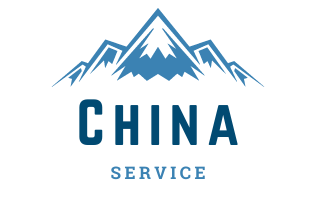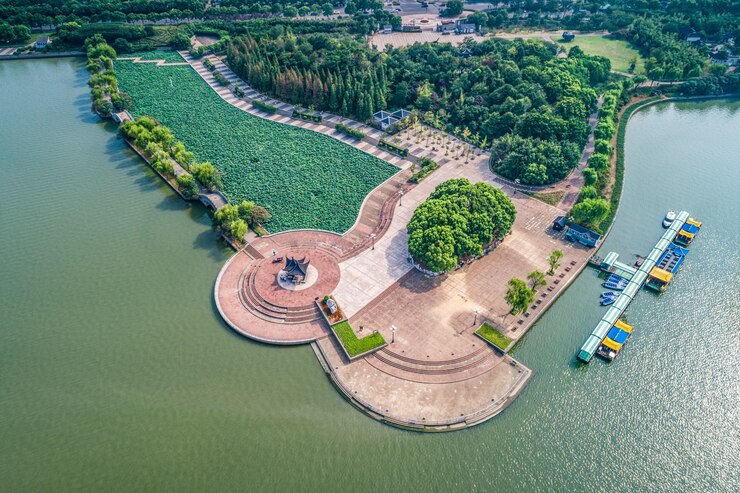Introduction
Importance of Mumbai Lake Levels
Mumbai, the financial capital of India, is a bustling metropolis that relies heavily on its lake systems for a steady water supply. The city’s lakes are not just sources of water; they are lifelines that support the daily needs of millions of residents. Understanding and managing the levels of these lakes is crucial for maintaining the balance between supply and demand, especially given the city’s ever-increasing population and industrial activities.
Overview of Water Management Challenges
Mumbai faces numerous challenges in managing its water resources. These include the impacts of climate change, rapid urbanization, aging infrastructure, and pollution. Each of these factors plays a significant role in affecting the lake levels and, consequently, the overall water management system. This article explores these challenges in detail, highlighting the interconnectedness of natural and human-induced factors and their cumulative impact on Mumbai’s water resources.
Purpose of the Article
The purpose of this article is to provide an in-depth analysis of the challenges related to Mumbai’s lake levels and offer viable solutions for effective water management. By examining historical data, current trends, and future projections, the article aims to shed light on the complexities of water management in a major urban center and propose strategies for sustainable water use.
Historical Context of Mumbai Lake Levels
Evolution of Water Management in Mumbai
Water management in Mumbai has evolved significantly over the centuries. From rudimentary methods of water collection and distribution in the early days to the establishment of sophisticated lake systems and pipelines, the city’s approach to water management has been shaped by its growing needs and technological advancements. Historical records reveal the construction of key reservoirs and waterworks that laid the foundation for modern water supply systems.
Historical Data on Lake Levels
Historical data on Mumbai’s lake levels provide valuable insights into the patterns of water availability and usage over time. By analyzing past records, we can identify trends and anomalies that have influenced current water management practices. Notable periods of drought and excessive rainfall have significantly impacted lake levels, prompting the implementation of various water conservation measures.
Key Events and Their Impact on Water Resources
Several key events have had a profound impact on Mumbai’s water resources. The construction of major reservoirs such as Vihar Lake in 1860 and Tulsi Lake in 1879 marked significant milestones in the city’s water management history. Natural disasters, such as the floods of 2005, have also played a critical role in reshaping water policies and infrastructure. Understanding these events helps in appreciating the complex dynamics of water resource management in Mumbai.
Current Status of Mumbai Lake Levels
Present Lake Levels and Capacity
As of recent reports, Mumbai’s lake levels fluctuate depending on seasonal variations and water usage patterns. Key lakes like Vihar, Tulsi, and Powai play a crucial role in supplying water to the city. The current capacity of these lakes is carefully monitored to ensure an adequate supply, especially during dry seasons. Recent data indicates that while some lakes are at optimal levels, others are struggling to maintain sufficient capacity.
Seasonal Variations
Mumbai experiences distinct seasonal variations that significantly affect lake levels. The monsoon season, typically from June to September, brings heavy rainfall that replenishes the lakes. Conversely, the dry season, from October to May, often sees a decline in water levels due to increased usage and evaporation. Managing these fluctuations is a major challenge for the city’s water authorities.
Comparison with Historical Data
Comparing current lake levels with historical data reveals trends that are crucial for long-term water management planning. Over the years, there have been periods of both surplus and deficit in water availability. By analyzing these patterns, authorities can develop strategies to mitigate the impacts of extreme weather conditions and ensure a consistent water supply.
Factors Affecting Mumbai Lake Levels
Climate Change and Its Impact
Climate change poses a significant threat to Mumbai’s water resources. Altered rainfall patterns, increased temperatures, and more frequent extreme weather events directly impact lake levels. Understanding the implications of climate change is essential for developing adaptive water management strategies that can withstand these changes.
Urbanization and Population Growth
Mumbai’s rapid urbanization and population growth exert immense pressure on its water resources. The expansion of urban areas often leads to the encroachment of water catchment areas, reducing the natural capacity of lakes. Additionally, the increased demand for water from a growing population necessitates more efficient water management practices to prevent shortages.
Industrial Activities
Industrial activities in and around Mumbai contribute to both water consumption and pollution. Factories and other industrial establishments require large amounts of water for their operations, often leading to significant withdrawals from lakes. Moreover, industrial effluents can contaminate water bodies, further complicating the management of clean water supplies.
Deforestation and Land Use Changes
Deforestation and changes in land use have a direct impact on water catchment areas. The removal of vegetation reduces the ability of the land to absorb and retain water, leading to increased runoff and reduced groundwater recharge. Sustainable land use practices are essential to maintain the ecological balance and ensure the health of water catchment areas.
Challenges in Water Management
Water Scarcity and Demand-Supply Gap
Water scarcity is one of the most pressing challenges facing Mumbai. The demand for water often exceeds the available supply, leading to shortages and restrictions. This gap between demand and supply is exacerbated by factors such as population growth, inefficient water use, and inadequate infrastructure.
Infrastructure Limitations
Mumbai’s water infrastructure, including pipelines and reservoirs, is often outdated and insufficient to meet the city’s growing needs. Leaks, bursts, and other issues in the water distribution system result in significant water loss. Upgrading and expanding the infrastructure is crucial for improving water management and ensuring a reliable supply.
Pollution and Water Quality Issues
Pollution is a major concern for Mumbai’s water bodies. Industrial effluents, sewage, and other contaminants degrade water quality, making it unsafe for consumption. Effective measures are needed to prevent pollution and restore the quality of water in lakes and other sources.
Governance and Policy Issues
Effective water management requires robust governance and policy frameworks. In Mumbai, there are often gaps and inconsistencies in water policies, leading to inefficiencies in management. Streamlining policies and ensuring their effective implementation is essential for addressing water management challenges.
Impact on Mumbai’s Population
Drinking Water Supply
The availability of clean drinking water is crucial for the health and well-being of Mumbai’s population. Any disruptions in water supply or degradation in water quality can have severe implications, especially for vulnerable communities. Ensuring a reliable supply of safe drinking water is a top priority for the city’s water authorities.
Agricultural Needs
Although Mumbai is primarily an urban area, there are still agricultural activities in its vicinity that depend on water from lakes and other sources. Ensuring adequate water supply for agriculture is important for food security and the livelihoods of those involved in farming.
Industrial Requirements
Industries in Mumbai require significant amounts of water for their operations. Any shortages or restrictions can impact industrial productivity and, by extension, the economy of the city. Balancing industrial water needs with those of other sectors is a key challenge for water managers.
Health and Sanitation Concerns
Water quality issues have direct implications for public health. Contaminated water can lead to waterborne diseases, affecting large segments of the population. Ensuring access to clean water and proper sanitation is critical for maintaining public health standards.
Government Initiatives and Policies
Existing Water Management Policies
Mumbai has several policies in place aimed at managing its water resources. These include regulations on water usage, conservation measures, and initiatives to improve water infrastructure. Reviewing and updating these policies regularly is essential to address emerging challenges and ensure their effectiveness.
Recent Government Initiatives
In recent years, the government has launched several initiatives to improve water management in Mumbai. These include projects to enhance water storage capacity, reduce leakage in distribution systems, and promote water conservation among residents. Evaluating the impact of these initiatives helps in identifying best practices and areas for improvement.
Success Stories and Lessons Learned
There are several success stories from Mumbai and other cities that offer valuable lessons in water management. Case studies of successful initiatives provide insights into effective strategies and innovative solutions that can be replicated or adapted to meet Mumbai’s unique needs.
Technological Solutions for Water Management
Smart Water Management Systems
Advances in technology have paved the way for smart water management systems that utilize data and automation to optimize water distribution and usage. These systems can monitor water levels, detect leaks, and manage supply in real-time, significantly improving the efficiency of water management.
Water Recycling and Reuse
Water recycling and reuse are effective ways to reduce the demand for fresh water. Technologies that treat and recycle wastewater for non-potable uses, such as irrigation and industrial processes, can help conserve precious water resources and alleviate pressure on lake systems.
Desalination Technologies
Desalination, the process of converting seawater into freshwater, offers a viable solution to address water scarcity. While it is currently expensive and energy-intensive, ongoing advancements in desalination technology are making it more feasible as a sustainable water source for Mumbai.
Rainwater Harvesting
Rainwater harvesting involves collecting and storing rainwater for future use. This practice can significantly augment water supplies, especially during the monsoon season. Implementing rainwater harvesting systems across residential and commercial buildings can help reduce the dependence on lake water.
Community Involvement in Water Management
Role of Local Communities
Local communities play a vital role in water management. Community involvement in conservation efforts, monitoring of water bodies, and advocacy for sustainable practices is crucial for effective water management. Empowering communities through education and resources can lead to more resilient water management systems.
Awareness and Education Programs
Raising awareness about water conservation and management is essential for fostering a culture of sustainability. Education programs that inform residents about the importance of water conservation and practical steps they can take to reduce water usage can have a significant impact on water management efforts.
Case Studies of Successful Community-Led Initiatives
There are numerous examples of successful community-led water management initiatives in Mumbai and other parts of India. These case studies highlight the power of grassroots efforts in achieving sustainable water management and offer valuable insights for scaling up similar initiatives.
Sustainable Practices for Maintaining Lake Levels
Conservation Practices
Water conservation practices, such as reducing wastage, optimizing usage, and implementing efficient irrigation methods, are critical for maintaining lake levels. Promoting these practices among residents, industries, and agricultural sectors can help ensure a sustainable water supply.
Sustainable Urban Planning
Sustainable urban planning involves designing and developing urban areas in ways that minimize their impact on water resources. This includes protecting water catchment areas, promoting green spaces, and integrating water-saving technologies into buildings and infrastructure.
Innovations in Water Conservation
Innovative technologies and approaches to water conservation, such as greywater recycling, low-flow fixtures, and drought-resistant landscaping, offer effective ways to reduce water usage. Encouraging the adoption of these innovations can significantly enhance water management efforts.
Best Practices from Other Cities/Countries
Learning from the best practices of other cities and countries that have successfully managed their water resources can provide valuable insights and strategies for Mumbai. Adapting these practices to local conditions can help improve water management and ensure the sustainability of lake levels.
Future Projections and Planning
Predicted Climate Patterns
Understanding predicted climate patterns is essential for long-term water management planning. Climate models indicate that Mumbai may face increased variability in rainfall and more frequent extreme weather events. Preparing for these changes through adaptive management strategies is crucial for ensuring water security.
Long-Term Water Management Strategies
Developing long-term water management strategies involves considering future water demand, potential challenges, and technological advancements. Strategic planning helps in creating a resilient water management system that can adapt to changing conditions and meet the needs of future generations.
Future Technologies and Innovations
Emerging technologies and innovations in water management, such as advanced desalination methods, AI-driven water distribution systems, and sustainable water treatment solutions, hold promise for addressing future water challenges. Investing in research and development of these technologies can provide sustainable solutions for Mumbai’s water management.
Policy Recommendations for Sustainable Water Management
Effective policy recommendations are critical for guiding water management efforts. These include policies that promote water conservation, incentivize the adoption of sustainable practices, and ensure the equitable distribution of water resources. Implementing these recommendations can help achieve sustainable water management in Mumbai.
Conclusion
Summary of Key Points
In summary, managing Mumbai’s lake levels and ensuring sustainable water management involves addressing a complex interplay of factors, including climate change, urbanization, infrastructure limitations, and pollution. By understanding these challenges and implementing effective solutions, it is possible to ensure a reliable water supply for the city’s population.
The Way Forward for Mumbai’s Water Management
The way forward for Mumbai’s water management involves a combination of technological advancements, community involvement, sustainable practices, and effective policies. By adopting a holistic approach and learning from past experiences and best practices, Mumbai can overcome its water management challenges and secure a sustainable future for its water resources.
Final Thoughts
Water is a precious resource, and managing it effectively is crucial for the well-being of any urban center. For Mumbai, ensuring sustainable water management is not just about addressing immediate challenges but also about planning for a future where water security is guaranteed for all its residents. By working together and embracing innovative solutions, Mumbai can pave the way for a resilient and sustainable water management system.
Keep Reading:
thesparkshop.in:product/baby-girl-long-sleeve-thermal-jumpsuit
18-Year-Old Tiana’s Sweet Fresh Cookies: A Success Story
thesparkshop.in:product/batman-style-wireless-bt-earbuds: Unleash Your Music Experience




